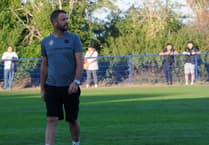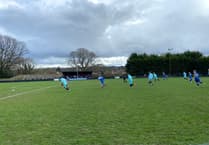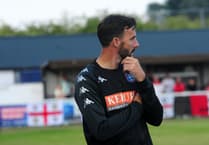I’D HAZARD a guess that, say since the turn of the last century, the most popular sport to be played competitively and recreationally in Farnham has been football.
It’s undeniably the most popular game in the world and it’s commonly referred to as the People’s Game.
It’s traditionally been so easy to play casually with family or friends, in the garden or in the park – you just need a football and a couple of sets of jumpers for goals and you’re away. Culturally and historically, it’s been another notable sporting activity in our area.
Most scholars agree the game, at least in some form, has been played for thousands of years across many countries of the world. In England, a primitive street version of the game can be traced back to medieval and ancient times.
Indeed, there appear to have been many orders to ban early forms of football but it was always difficult to enforce – people enjoyed it too much and betting was rife.
In the 14th century King Edward II sent out a proclamation banning the game across the country as it was a distraction from the important task of prioritising archery practice and games could – and often did – lead to serious injury or a breach of the peace. These royal banning orders to contain this rough form of football continued for centuries.
Industrialisation was a significant factor in the formation of football teams all over the country and matches, always popular and well supported, were based initially around local church and factory teams. But the development of structured football is also strongly associated with Britain’s public schools.
Certainly, it was in Britain in the mid-19th century that football first became an organised and codified sport. From humble beginnings, many of those church and factory teams morphed into some of the most famous football clubs in England.
The earliest football club may have been formed in Sheffield in 1855 but the oldest professional football club in the world is Notts County, founded in 1862, although they were recently relegated from the upper tiers of English football to the National League.
The club even pre-dates the Football Association, the oldest football association in the world, which was formed in 1863.
Interestingly, the Oval cricket ground, the home of Surrey County Cricket Club since 1845, hosted the first ever unofficial international ‘friendly’ – in 1870 – and also hosted the second official international game of football in 1873. Both fixtures were between England and Scotland.
The same ground, world renowned for cricket, also hosted the first FA Cup Final in 1872, when The Wanderers beat the Royal Engineers 1-0.
The Oval hosted all subsequent FA Cup finals up until 1892.
The finest day in English football, of course, occurred on Saturday, July 30, 1966 when England beat West Germany at Wembley Stadium, after a highly eventful two hours’ football, to lift the World Cup.
Back to home, Farnham Town were founded in 1906 and has historically been our town’s top-flight team – but Badshot Lea have emerged powerfully in recent times.
All our village and pub football teams have historically played an important part in the cultural, sporting and social fabric of the area although its a sad fact that, regardless of the coronavirus development, many local football teams have folded.
Football as an adult team sport – and even as an organised school team sport – has been diluted over the years, but taking its place, there has been a huge surge of interest in youth club football, for both boys and girls.
Aldershot Town aren’t as old as many of our Farnham clubs but they’ve traditionally had a local following because they’ve played in the national tiers of English football.
Perhaps Farnham’s most high-profile football names are, firstly, Farnham-born Peter Storey who, in the 1960s and 1970s made 391 appearances for Arsenal and won 19 England caps and, secondly, the former non-league football manager Geoff Chapple who, at the back end of the 1990s, won the FA Trophy an incredible five times in seven years.
The ‘beautiful game’ has contributed some well-known phrases to our daily language, such as ‘to kick off,’ or you might ‘get the ball rolling.’
If you have a discussion about an idea you might ‘kick it around’ or ‘kick it into touch’ or you may even be warned about ‘moving the goalposts’ or ‘scoring an own goal.’
Let’s hope the joy, the sounds and all the phrases of football come back soon.




